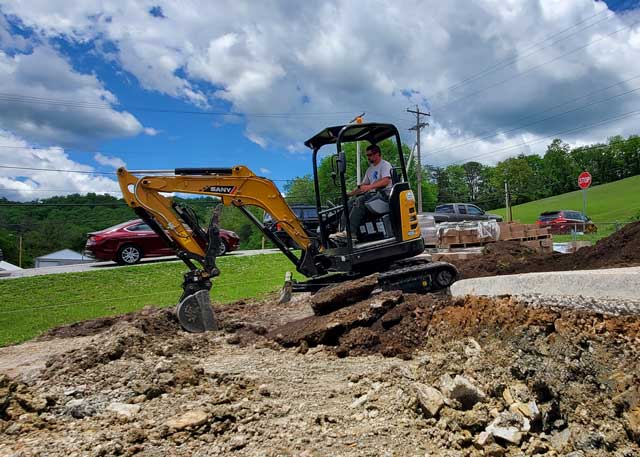Comprehensive Excavation Approaches: Mastering the Principles for Success
In the realm of building and construction and civil engineering, the value of effective excavation methods can not be overemphasized. The careful planning, exact execution, and thorough interest to information called for in excavation projects demand a thorough strategy that incorporates different basic elements. From preliminary soil analysis to the application of safety procedures and regular development tracking, grasping these core components is important for accomplishing success in any type of excavation venture. The real proficiency exists not merely in comprehending these basics however in perfectly integrating them to navigate the complexities of excavation jobs with skill.
Comprehending Excavation Job Preparation

Effective excavation jobs are built on the structure of thorough and complete preparation. The first phase of any type of excavation task is the drawing board, where critical decisions are made that can substantially impact the end result of the project. Throughout this stage, it is vital to gather all appropriate information regarding the site, consisting of topographical surveys, soil structure, and any type of possible hazards that might exist. Recognizing the project budget, timeline, and range restraints is important for producing a detailed excavation plan that makes certain the task's success.
One key aspect of excavation task preparation is the growth of an in-depth timeline that details the series of activities, landmarks, and target dates. This timeline serves as a roadmap for the project team, enabling them to track progress and make necessary modifications to make sure the job remains on schedule. In addition, a distinct budget that accounts for all costs, including tools service, labor expenses, and materials, is crucial for staying clear of expense overruns and delays. By carefully thinking about all these factors throughout the drawing board, excavation projects can be executed successfully and successfully, causing effective end results.
Soil Analysis and Website Analysis
Conducting complete dirt analysis and site examination is a crucial step in the prep work stage of any excavation project. Soil evaluation entails determining the structure, structure, and residential or commercial properties of the soil at the excavation site. This details is crucial for understanding the soil's bearing capability, dampness content, and potential for erosion, which are essential consider establishing the excavation methods and equipment needed for the project.
Site assessment surpasses soil analysis and encompasses a more comprehensive assessment of the total website problems. This evaluation includes identifying any type of possible hazards, such as underground energies, environmental issues, or unsteady terrain, that might affect the excavation procedure. By extensively examining the site, job supervisors can establish effective excavation techniques that focus on safety, effectiveness, and ecological security.
Utilizing sophisticated modern technologies like ground-penetrating radar, dirt tasting, and drone surveys can enhance the precision and effectiveness of soil analysis and website examination. Investing time and resources in these preliminary steps can inevitably save time and avoid expensive delays or problems throughout the excavation process.
Equipment Selection and Usage
Efficient excavation tasks count greatly on calculated equipment option and use to guarantee ideal performance and productivity. Picking the ideal equipment for the work is vital in making best use of performance and lessening downtime. Factors such as the kind of dirt, depth of excavation, and task range play a substantial function in identifying one of the most suitable devices for the task at hand.

In enhancement to picking the proper tools, proper utilization is vital to project success. Operators needs to be find more educated to manage the tools securely click here to read and effectively - septic ohio. Normal upkeep checks and prompt repair services assist protect against breakdowns and make certain regular efficiency throughout the task
Precaution and Laws Compliance
In the realm of excavation projects, focusing on safety and security procedures and compliance with regulations is paramount to guaranteeing a legitimately audio and protected operational atmosphere. Precaution include a range of techniques, consisting of carrying out comprehensive website evaluations, executing proper signs and barriers, and giving appropriate safety training for all employees associated with the excavation process. Adherence to guidelines, such as OSHA demands in the USA, makes sure that the excavation project fulfills the required standards to secure workers, onlookers, and the surrounding environment.

Monitoring Progress and Adjusting Techniques
How can project supervisors effectively track the improvement of excavation projects and adjust their techniques as necessary to enhance end results? Tracking progression is vital for guaranteeing that excavation tasks remain on track and meet target dates.

Final Thought
In verdict, understanding the basics of extensive excavation strategies is crucial for the success of any type of project. By understanding task planning, evaluating dirt and site problems, choosing appropriate equipment, adhering to safety and security regulations, and keeping track of progression, project supervisors can guarantee a efficient and smooth excavation procedure. Implementing these techniques will result in effective results and decrease potential threats or setbacks during the excavation task.
The preliminary stage of any type of excavation task is the planning phase, where crucial choices are made that can significantly affect the result of the project. Comprehending the job timeline, range, and spending plan constraints is vital for creating an extensive excavation plan that ensures the job's success.
Exactly how can predict supervisors effectively track the development of excavation jobs and adjust their strategies as necessary to optimize end results? By carefully checking progress and being prepared to adapt methods, job supervisors can enhance the overall success of excavation projects.
By comprehending job preparation, examining dirt and website problems, picking ideal tools, abiding with safety and security regulations, and keeping an eye on progress, project managers can ensure a efficient and smooth excavation process.